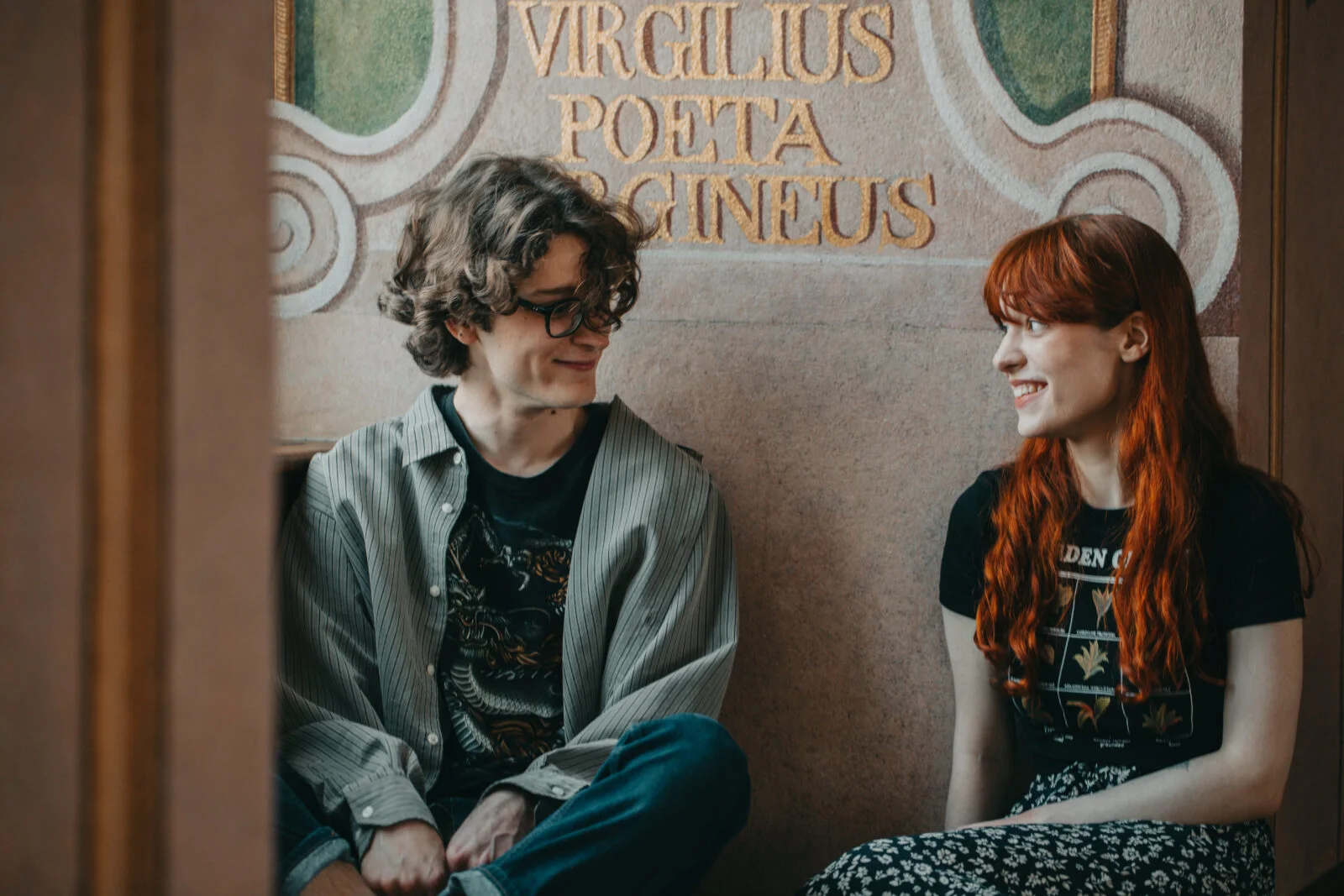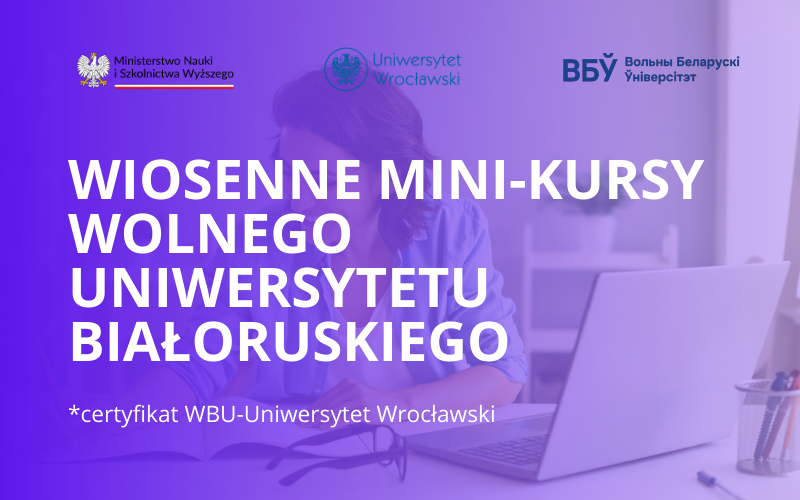
Courses of the Free University of Belarus
Wolny Uniwersytet Białoruski (eng. Free University of Belarus) invites students from Belarus, both at home and in exile, to participate in certified online courses. Programmes enable students to deepen their knowledge of key historical, political and economic processes that shape the modern world. WUB courses are more than theory – they provide practical skills, critical thinking development and the opportunity to gain new professional competencies that open doors to future success.
Courses offered:
Belarus between democracy and totalitarianism in the 20th century
The course examines the key events of the 20th century that shaped the political destiny of Belarus. The programme includes an analysis of the attempts at independence, the period of control of totalitarian systems, the development of national identity and the influence of external forces on the formation of statehood.
Lecturer: prof. dr hab. Mikołaj Iwanow – professor at the University of Opole, former Soviet dissident of Belarusian origin, activist of the underground ‘Solidarity’ movement in 1981-1989.
Registration deadline: 4 April 2025
Registration: https://volny-uni.eu/belarus-pamizh-demakratyjaj-i-tatalitaryzmam
Birth of the Belarusian Leviathan
The course provides an understanding of the events of 1991-1996 and their consequences. It analyses the period 1997-2020, when the modern authoritarian system took shape in Belarus while civil society developed. The programme covers the key events, political decisions and strategies that shaped the conflict, as well as the impact of international processes and technological change.
Lecturer: prof. dr hab. Wiktor Szadurski – Dean of the Faculty of International Relations of the Belarusian State University from 2008 to 2021, researcher of modern political history of Belarus.
Registration deadline: 24 March 2025
Registration: https://volny-uni.eu/naradzhenne-belaruskaha-levijafana
Economic Transformation in Central and Eastern Europe
A course devoted to the analysis of economic transition in Central and Eastern Europe after the collapse of communist regimes. The programme covers the adaptation of the countries of the region to a market economy, reforms conducive to integration with the European Union and challenges on the road to economic growth.
Lecturer: dr hab. Marek Wróblewski, professor at the University of Wrocław – head of the Department of International Economic Relations and European Integration at the Institute of International and Security Studies of the University of Wrocław, Permanent Representative of the Republic of Poland to the World Trade Organisation in Geneva, expert of the European Commission, coordinator of the Erasmus Mundus Global Studies programme.
Registration deadline: 27 March 2025
Language of instruction: Polish
Registration: https://volny-uni.eu/ekanamichnaja-transfarmacyja-u-centralnaj-i-ushodniaj-europe
Local self-government in Poland and EU countries
A course devoted to models of local government in European Union countries. The programme covers the functioning of local authorities, construction of city and regional budgets and the role of civil society in the decision-making process.
Lecturer: dr hab. Krzysztof Kociubiński, professor of the University of Wrocław – Director of the Institute of International and Security Studies of the University of Wrocław, expert in the field of local self-government and cross-border cooperation.
Registration deadline: 27 March 2025
Language of instruction: Polish
Registration: https://volny-uni.eu/miascovaje-samakiravanne-u-polshchy-i-ez
More information on the website of the Free University of Belarus: https://volny-uni.eu/courses-vbu

Date of publication: 21.03.2025
Added by: M.J.



